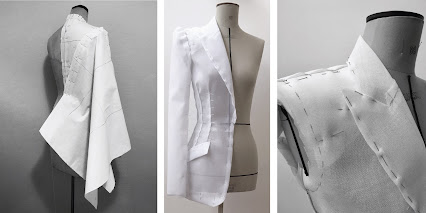The Philosophy Of LIFESTYLE WITH FASHION has
a wide range of topics that you can explore. The website offers advice on
fashion, relationships, and travel. The site is geared towards affluent working
women and offers a global perspective on style.
Anti-fashion
The Anti-Fashion philosophy is a concept
that challenges the notion of fashion and emphasizes the importance of
investment pieces. This approach also emphasizes the use of recycled materials,
high-quality craftsmanship, and the durability of designs. This philosophy was
first popularized by avant-garde designers who resisted popular demand and
sought out alternative methods for creating art. However, with the advent of
fast fashion and social media, this rebellious attitude has diminished.
A few styles have made their way into the
mainstream. Grunge and normcore have been associated with the Anti-Fashion
philosophy. They originated in the early twentieth century when Gabrielle
Chanel promoted a style for the "poor girl" in the form of
"quality clothing." Prince Charles was also considered an
"Anti-Fashion" and "traditional". Similarly, in the 1980s,
punk fashion began to emerge, which emphasized wearing simple, plain T-shirts,
black trousers, boots, and a short hairstyle.
Making and wearing
clothes
Making and wearing clothes as a philosophy
of life has become increasingly important to contemporary culture.
Philosophical discourses about clothing have often been dominated by aesthetic
concerns. But there has also been a growing focus on clothing and appearance
among philosophy students. In fact, since the 1970s, philosophy departments
have exploded, with more philosophers working on clothing issues.
There is a movement against the fast
fashion model. Fast fashion was made possible by cheap materials and
accelerated trend cycles. Some companies, such as H&M, burn tonnes of
unsold clothing every year. Slow fashion aims to change this model. Before the
Industrial Revolution, garments were made locally and reflected the culture of
the wearers.
Political stances
in fashion
Political stances in fashion are all around
us and are an important part of today's culture. Whether it is a feminist
protest or the support of the right to equal pay, fashion is political.
Politics has always been a part of fashion, and political stances in fashion
are no different.
Fashion designers are increasingly taking
political stances in their collections. This can help them reach out to the
public and influence public opinion. For example, Maria Grazia Chiuri, the
first female creative director of Christian Dior, recently designed T-shirts
declaring "We Should All Be Feminists" to highlight feminism. Chiuri
has received a Swarovski award for creating positive change in the world and is
a leading voice in the world of fashion. Other designers are following her
lead, creating collections that speak about important issues.
Influence of
anti-fashion on fashion
The influence of anti-fashion on fashion
philosophy began with the ideas of Yohji Yamamoto, a designer who was adamant
about following trends and rejecting preexisting fashion narratives. His
anti-fashion philosophy was a reaction to an era of cynicism, instability, and
reactionary malaise. His anti-fashion philosophy was centered on minimalism and
adornment.
Anti-fashion became a major fashion
movement during the 1990s with the emergence of many anti-fashion designers
such as Ann Demeulemeester, Maison Martin Margiela, and Raf Simons. These
designers were part of the 'Antwerp six,' a group of designers who questioned
the ideal of beauty and the conventional fashion style. Yoko Ono is also
credited with influencing many anti-fashion designers. She famously designed a
collection of clothes for the Salvation Army, a satirical reaction to the meaningless
clothes of the fashion industry.
Anti-fashion has long roots in history and
has a rich theoretical and anthropological underpinning. Taking a feminist
perspective, anti-fashion examines the mode of dress through a feminist lens.
Throughout history, anti-fashion has become a symbol of values and group
membership, while it empowers its followers.





